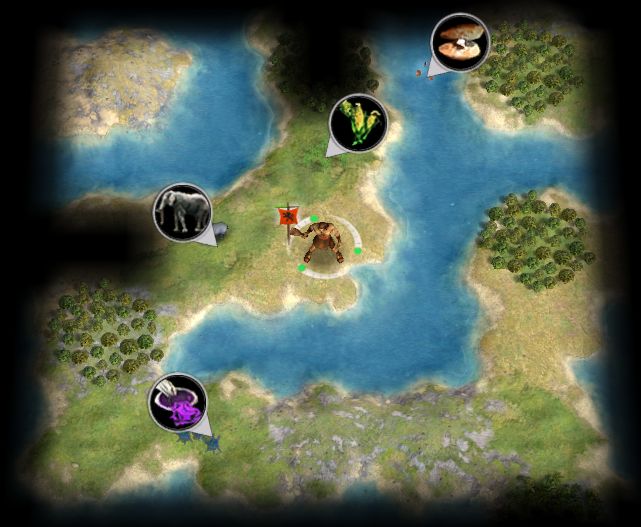
The starting path is not at all obvious. Work boat or worker first was a tough call, but ultimately I went for the worker. Reason being that we have no pure hammer tile. Building the work boat on the 2-1-0 ivory then 1-2-0 hill would "trap" some food unused for growth for many turns until the work boat completed. Instead, the worker puts all the factors of production directly into the productive item.
Also inconclusive is research. No tech stands out, since we have both Fishing and Agriculture. Well, Animal Husbandry is correct, but only if you know by mapmaker spoiler that we have horses at the capital. Pretending I don't know this, the best choices seemed to be Hunting for ivory then Sailing. For once, Mining - Bronze are not needed quickly, we've got elephants for hammers and only a few forests.
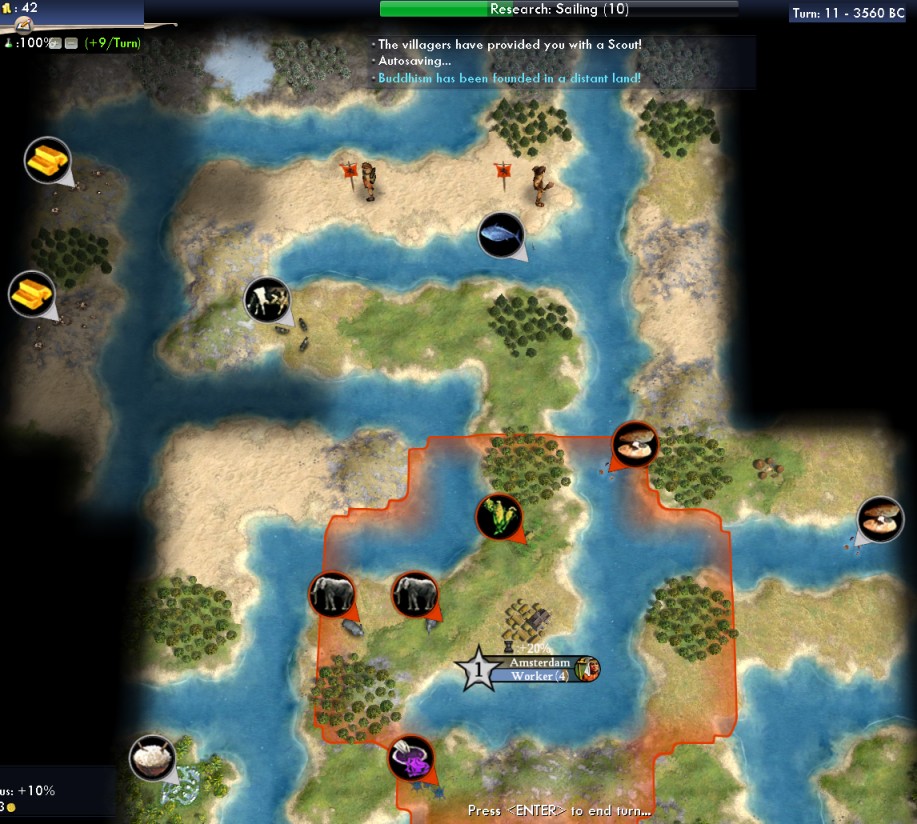
The two huts to the north popped map and scout... the faster scout returned through my territory while the slower warrior kept going north.
Build order worker - work boat - warrior (police) - lighthouse - settler (at size 5) - work boat (for city two) - worker (because the first one traveled to city two) - galley - Great Lighthouse.
Tech: Hunting - Sailing (too early) - Wheel - Mining - AH - Pottery - Masonry (to start Great Lighthouse) - Bronze - Archery (too many barbs).
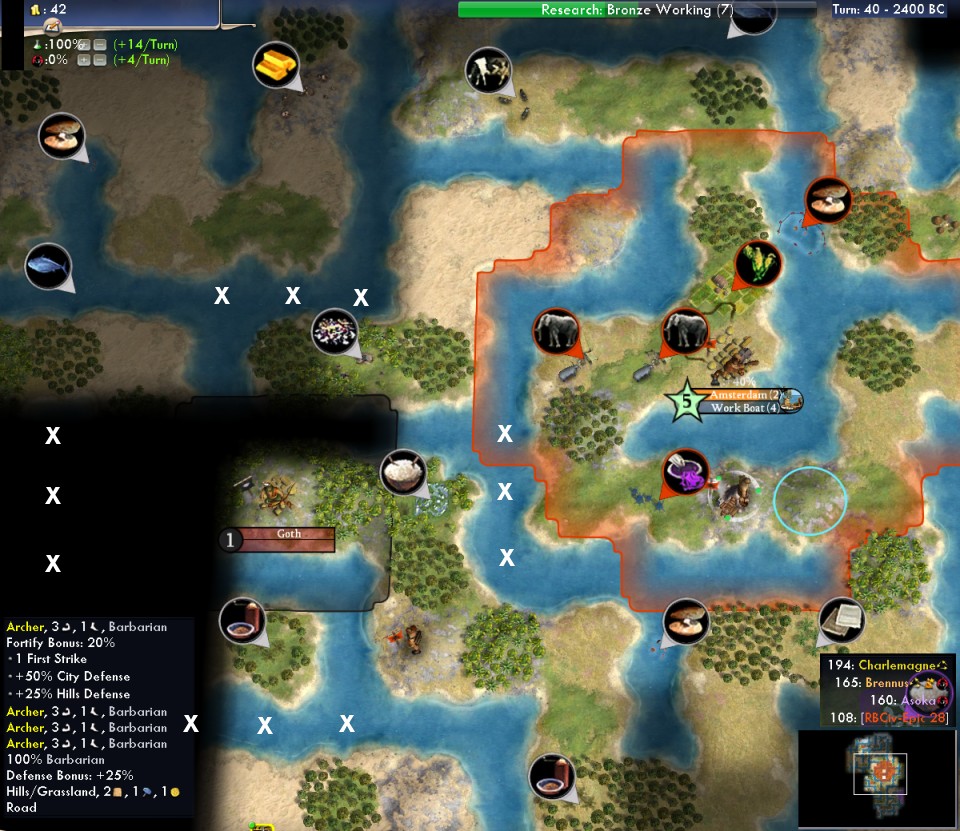
This barbarian city of Goth pulled a Timmy, spawning right where I wanted my own city. But four hilltop archers would take a while to crack. One good way to handle this - especially for a Creative civ - is simply settle your own city three tiles away from the barb city and flip it by culture in short order. Except that this map foiled that plan! Marked by the X's, every single tile at 3 distance from this city is constrained by this map script to be water. A flip attack from 4 distance doesn't work, 500 culture takes forever. So Goth ended up having to wait for some catapults.
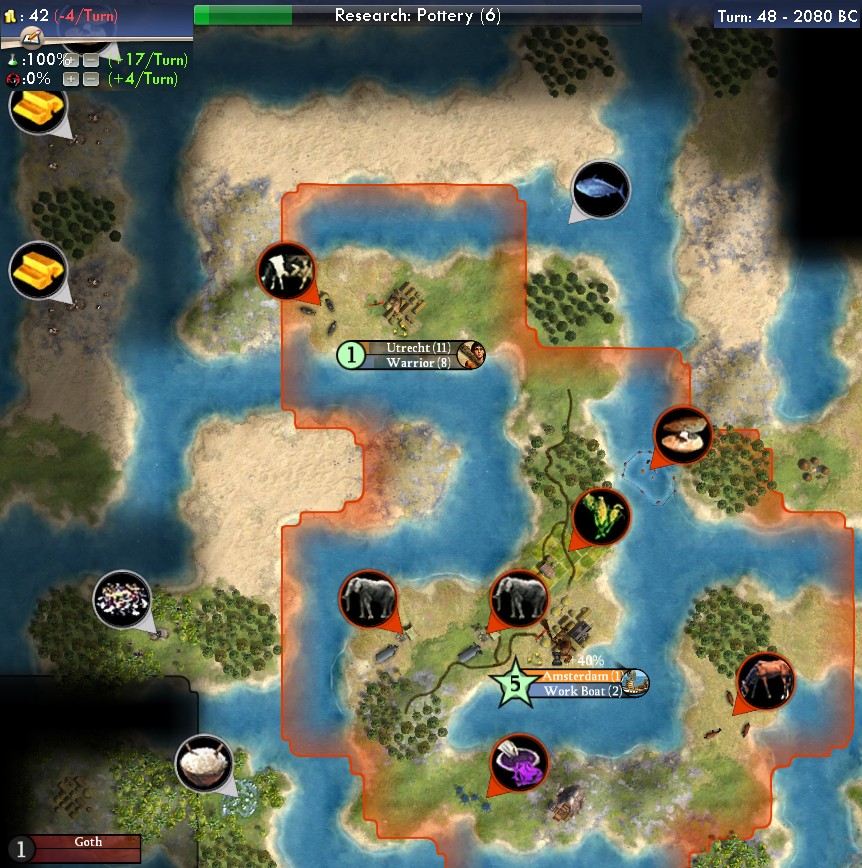
Anyway, there's city two, at what seems like the most immediately productive and accessible spot. Two food resources and two hills would get productive quickly. Amsterdam is supplying the work boat for the fish, a move that should always be done if possible, never let a newborn city suffer an unimproved fish for 30 hammers building its own work boat, give it help from a big brother.
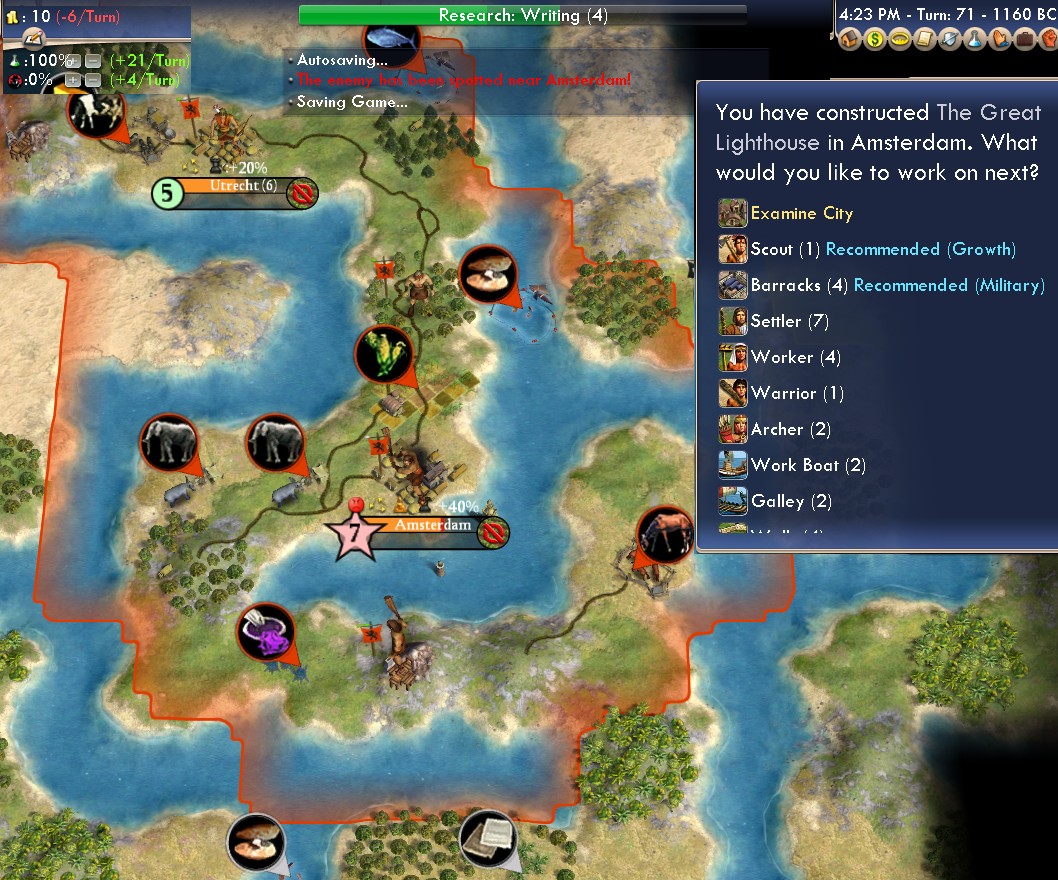
And my capital got the Great Lighthouse. 1160 BC is quite a bit later than I had hoped. I still got it, but don't know if I got lucky. I have no good sense for how fast Deity AIs can build wonders, especially on this hammer-limited map. One little known mechanics fact is that the AI difficulty cost discount does NOT apply to wonders, to give the human player a fair shake there. The per-era discount DOES apply, so 5% per era on Deity, but at the start you're actually playing on a level field for wonders.
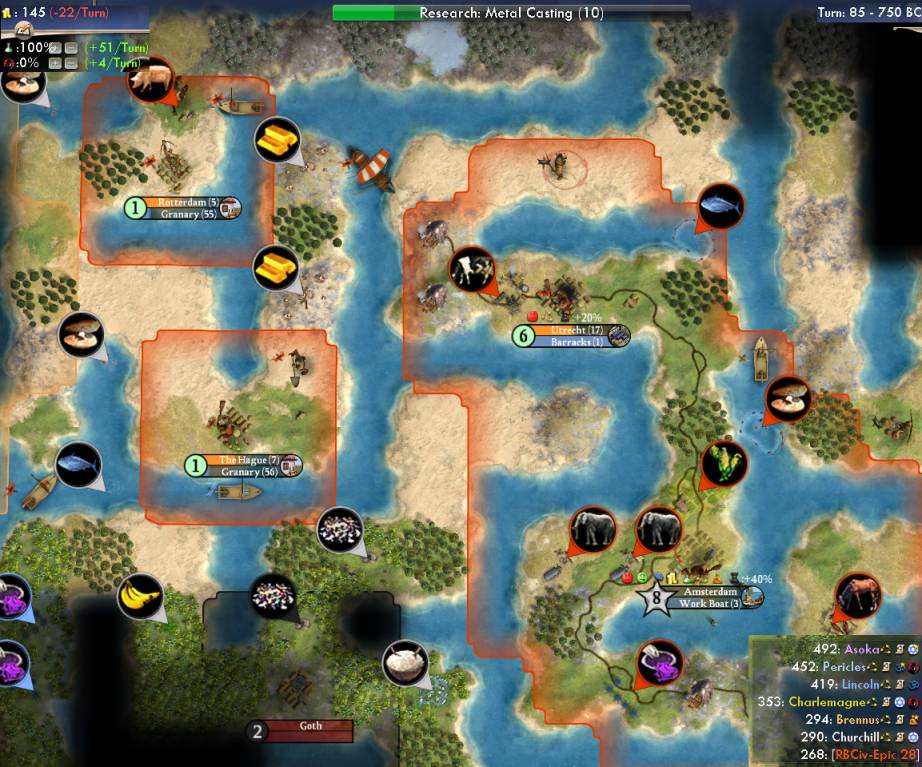
My next two settlers sailed northwest to gold. It's not immediately obvious, but the gold area is handled way better by splitting them to two different cities. No location can get both gold with even a single food resource, but these two locations can pair two food each with one gold.
Metal Casting is my research choice there for two reasons: the Colossus, and trade bait. But I didn't get the Colossus after it fell surprisingly early at 375 BC. (I think someone Oracled MC.)

But MC did its job, parleying into three more techs.
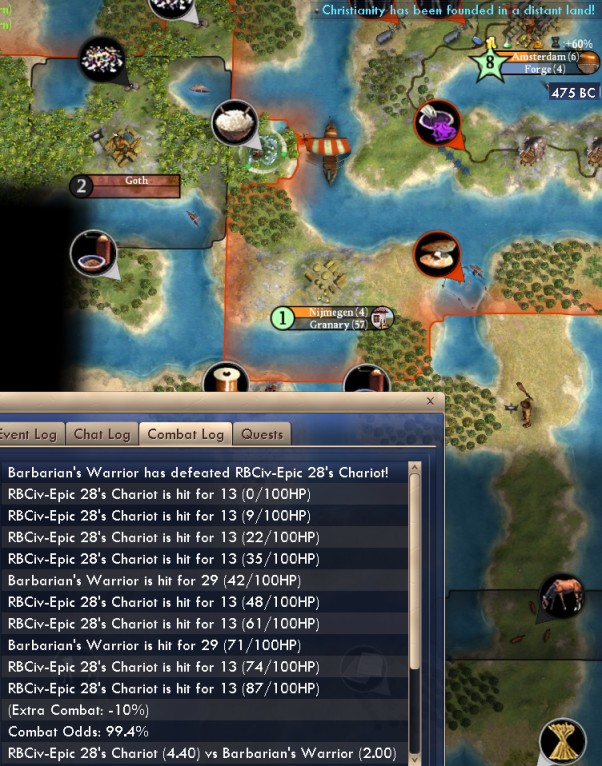
Grumble grumble random number generator. 99.4% odds for my chariot, and not only did it lose, but the barbarian even had a hit to spare. Binomial calculator says that the chance for P = 0.3125 (2/6.4), 12 trials, 10 or more successes is 0.0003 probability or literally one in three thousand odds. The loss was a minor drag as I had to pull Amsterdam's police unit onto the boat and spend a turn angry to build a new one. (The selected unit is a worker, not military.)
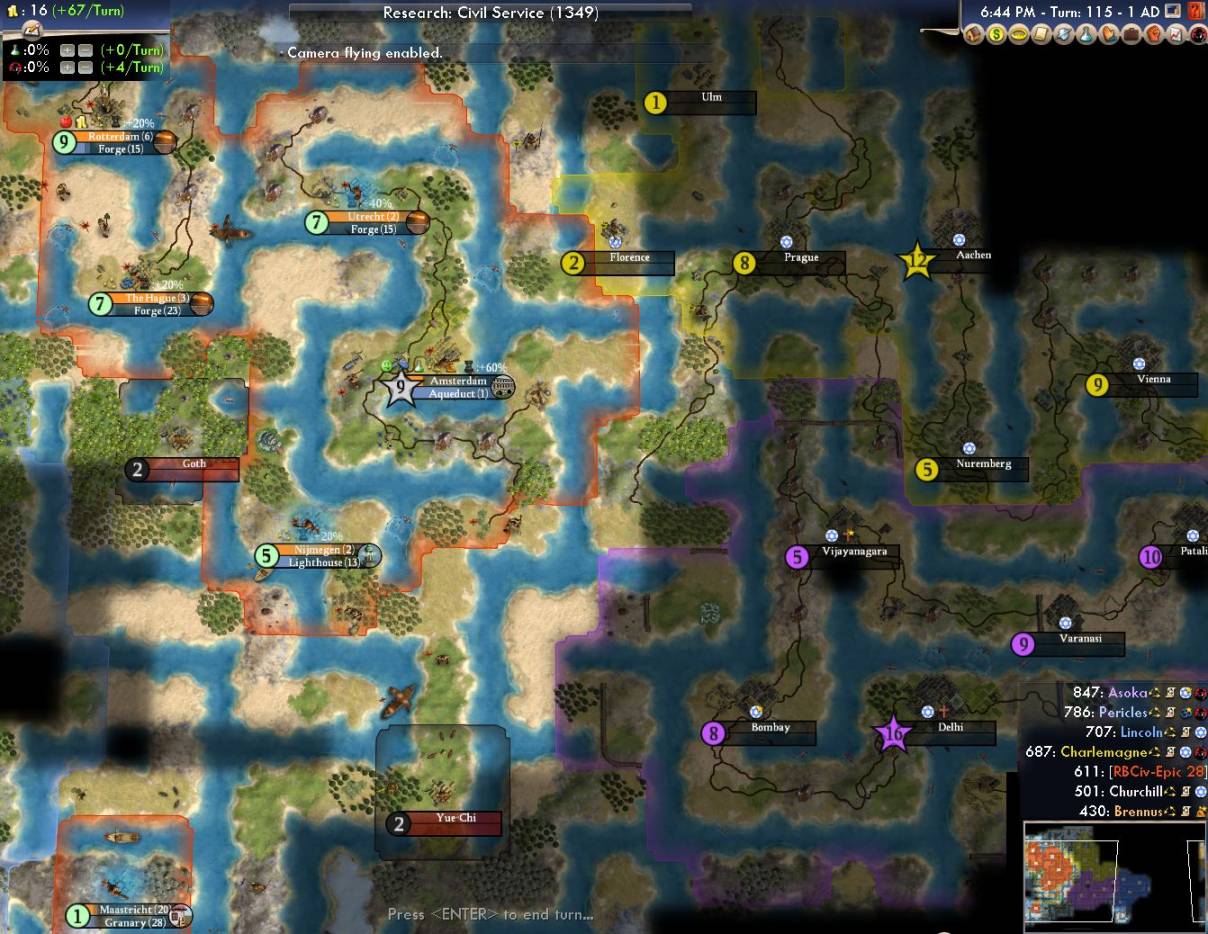
And an overview at the always-popular date of 1 AD, after I added a fifth and sixth city. Since it would be a while until I could get Goth (need siege, a rookie swordsman can't get odds on hilltop archers), I settled my own Nijmegen there in the meantime to take the rice.
And I've even climbed out of the basement of the scoreboard. Still a long way to go, though.